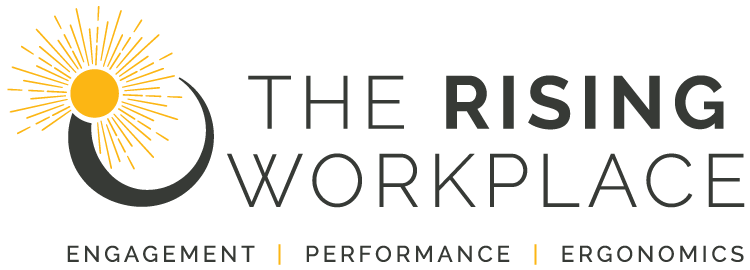3 Actionable Tips For Better Workplace Boundaries
Workplace boundaries are difficult to set now that work from home makes up more than 60% of work modalities. Workplace has merged with our living space, family place, and personal space. This being said, boundaries are more important than ever when it comes to preventing burn out and fostering psychological safety.
Boundaries can look different for everyone. While physical boundaries can be easy to identify—for example, if someone is a hugger rather than a hand shaker when it comes to saying hello. Emotional and psychological boundaries can be more difficult to identify and communicate.
We will identify below three ways employees and employers can set and maintain healthy boundaries at work. Join us in making work safe and enjoyable for everyone.
The following 3 steps are for employees who are looking to set boundaries with work.
Employees
Action #1: Avoid Gossip
In the workplace, talking negatively about someone or something in a way that does not result in steps towards a solution, is considered gossip
Gossip results in lack of trust, fear of challenging the status quo, and disengagement.
If needing to vent, use a third party.
If needing help in changing a situation, address coworkers about the issue in a way that asks for solutions and uses curiosity to change perspective
Action #2: Recognize Needs
With the busy world of today, we can often end up on autopilot and forget to check in with ourselves.
Ask yourself, what do you need to do to be able to keep showing up as an effective version of yourself?
No emails on the weekend?
No staying past 5 PM on Thursdays?
No more pushing off those vacation days?
Communicate these often and early
What do you get when your boundaries are set and met?
Better performance
Safety at work
Reduced burnout
Pro Tip: When checking in with yourself, ask “What do others need to be able to keep showing up as an effective version of themselves?”
Be sure you are not asking of others something you would not ask of yourself.
Action #3: Turn Off Notifications Outside of Working Hours
This one is tough. And for some fields or positions it just isn't possible.
Setting clear working hours, and then only working in those hours has been shown to be more effective in accomplishing goals at a high level than those who worked non stop for double the time.
Recognise the importance separation and time off has on your quality of work.
The following 3 steps are for employers who are looking to set boundaries with work.
Employers
Action #1: Replace “We’re a family here” with “We hold one another accountable and value transparency and integrity.”
This label, while well intended, can convolute expectations and responsibilities.
Rather, determine what values better express the workplace culture.
Ex. family < accountability, transparency, dedication, empathy
Using words with less charge and more specificity can help new and existing employees sparse out the true meaning behind the mission.
Action #2: Switch to Office-Hours-Only Emailing
While work doesn't always stop at 5 o'clock, it is important for balance that employees are not being contacted outside of work hours.
You may, as a manager, be catching up on emails after hours, but in these responses, simply schedule their send for working hours the next day.
This way you do not set the expectation that employees will always need to be on call. Giving them, and you, a chance to recover and come back refreshed the next day.
When working on global teams, across more than one time zone, including in your emailing signature you working hours, and stay mindful of the working hours of others in different time zones.
Action #3: Provide Trainings that Foster and Enhance Self Awareness
Ex. Emotional intelligence workshops can aid in identifying, interpreting and communicating one's thoughts and feelings.
Emotional intelligence is a critical skill when it comes to any workplace function.
Boundaries can be difficult to set. Especially when you have friends at work, or your workplace is laid back and relaxed. Even though socializing and having a free flow culture are positive, boundaries can become muddled and risk of burnout becomes very real. We welcome you to view boundaries on a sliding scale in terms of what is right for you, rather than rigid barriers. While it is important to be consistent about your boundaries, there is no set right or wrong when it comes to what makes you feel safe. Your boundaries may differ from others and that is okay. However, when it comes to the workplace, respecting everyone's boundaries is how we keep each other healthy and safe.
For more information on employee engagement programs, ergonomics, and workplace design, contact us at 828-214-5045 or connect@risingworkplace.com



